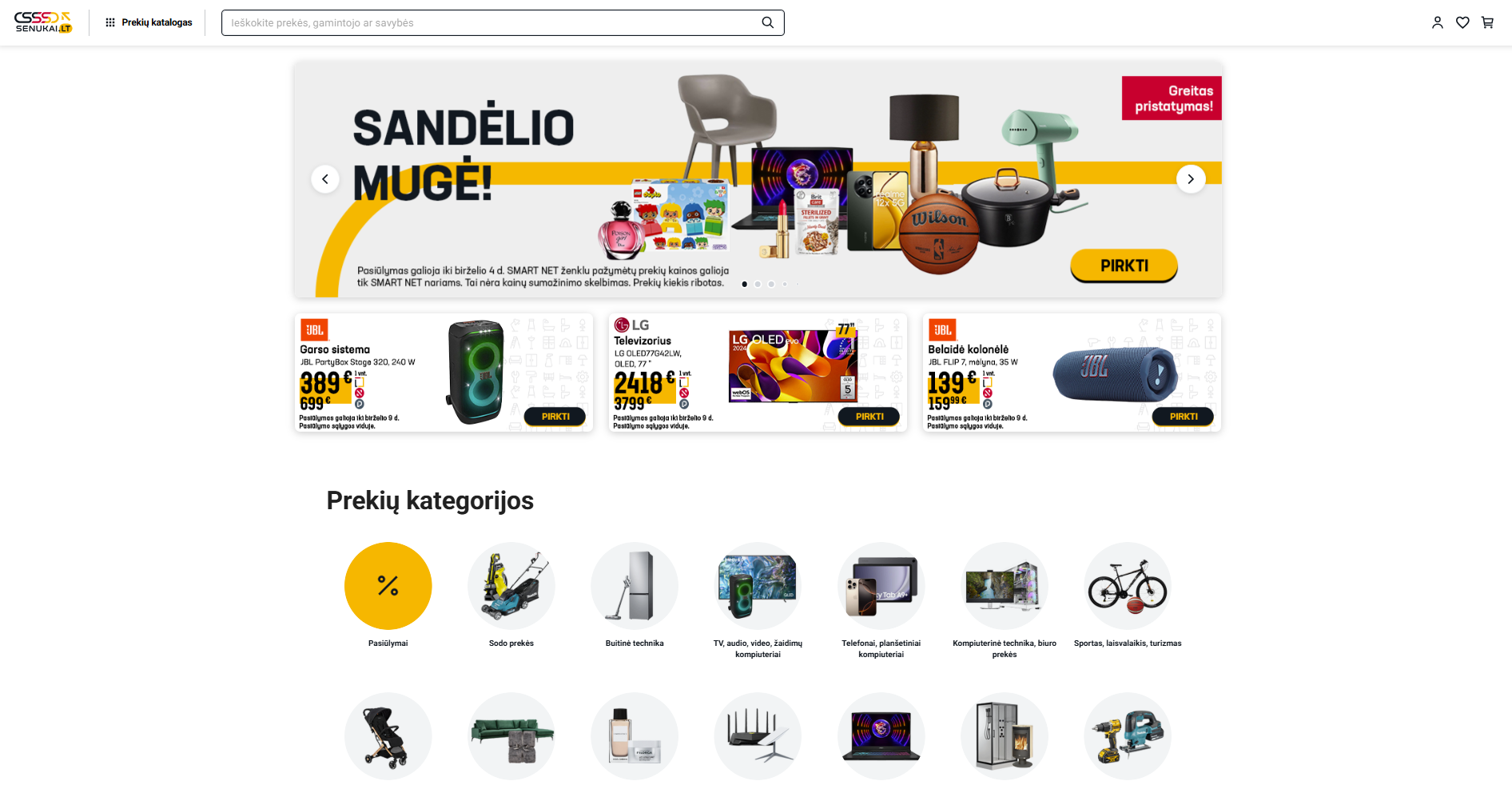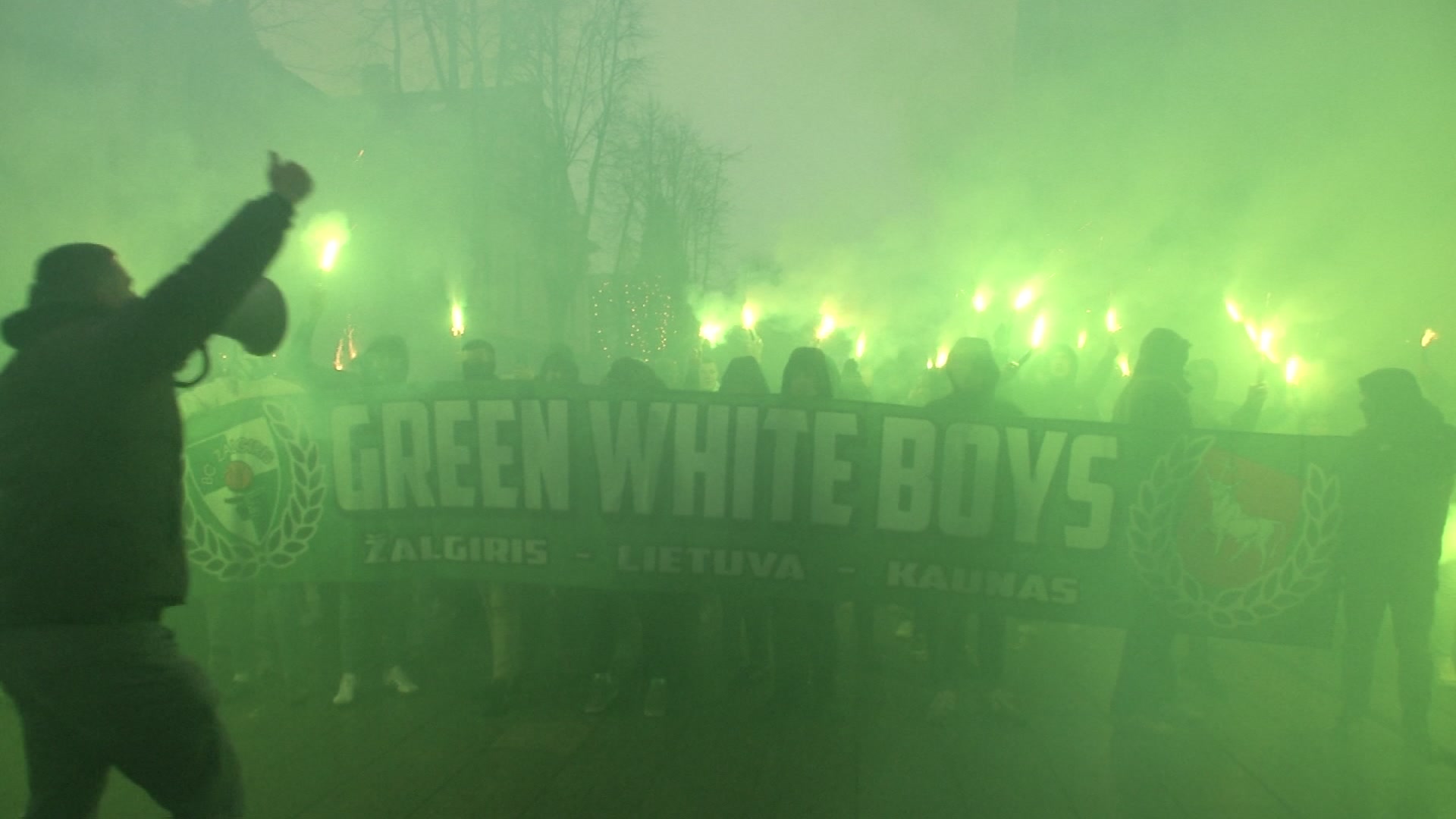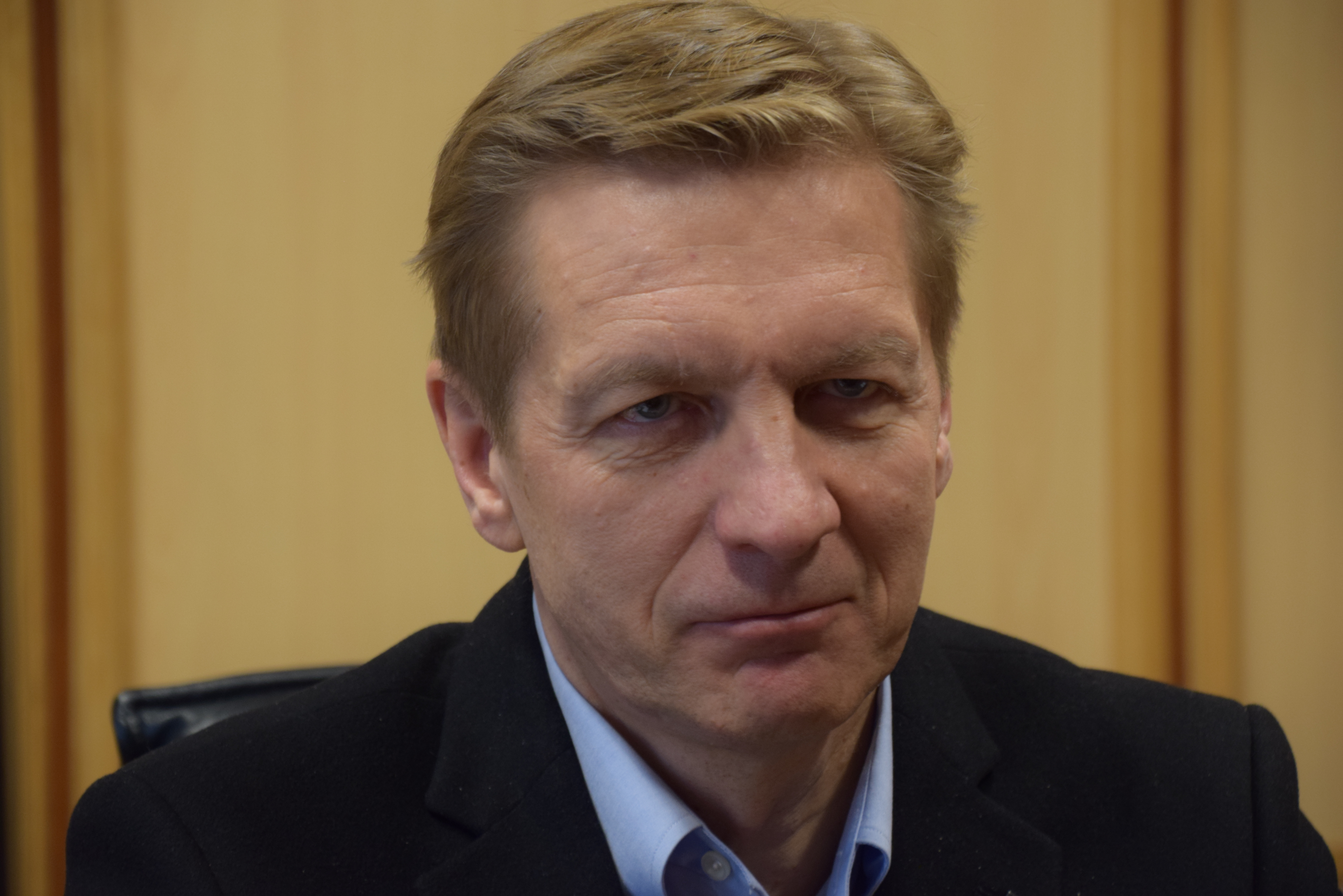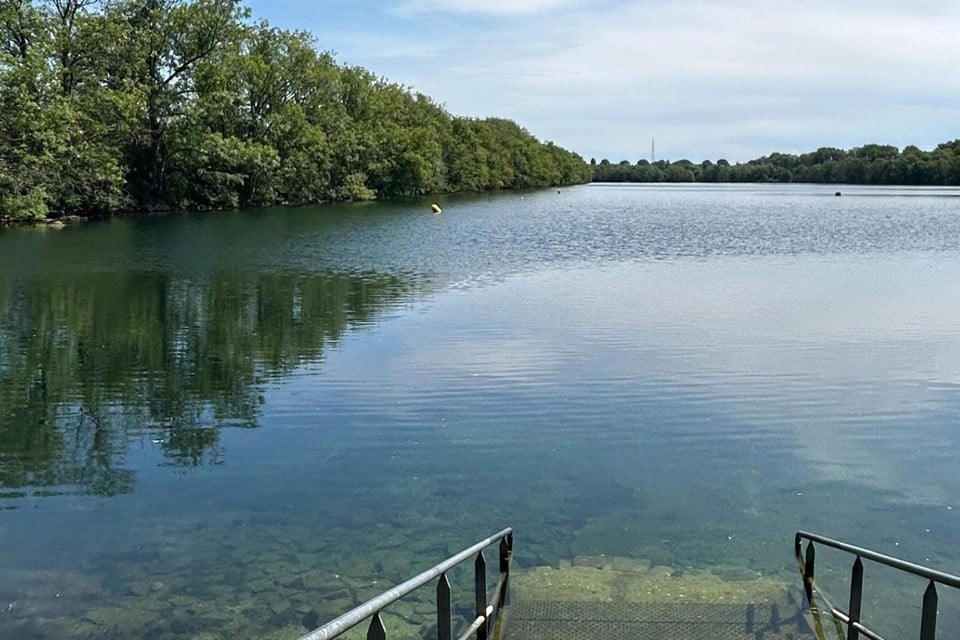Non -alcoholic Lighthouse Extra picked up laurels at prestigious global awards
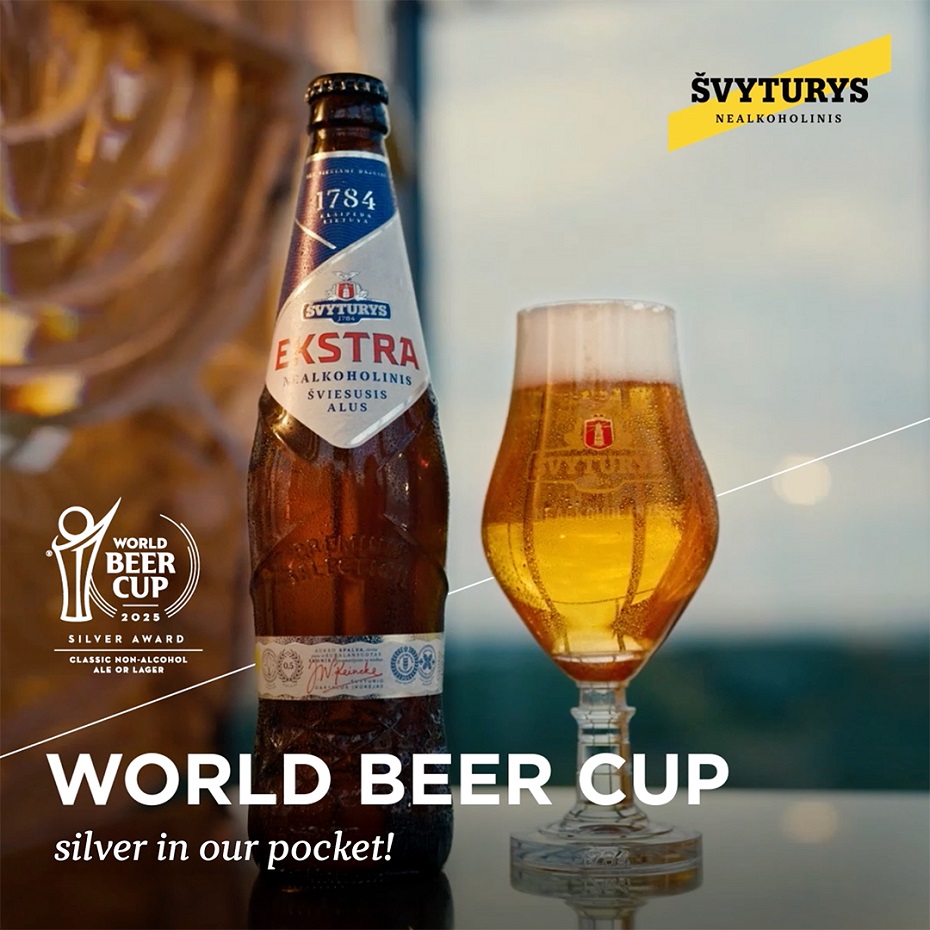
The prestigious evaluation of the non-alcoholic « Lighthouse Extra » was dedicated to the Classic Non-Alcool ale or Lager category, which evaluates the classic-style non-alcoholic eles and camps.
“This is how our brewers have implemented the promise given to their consumers – to create a non -alcoholic beer that maintains a full -fledged taste, to meet the highest quality standards, and in the long run the amount of international recognitions would not go down to their predecessor to the traditional Extra beer. Of course, we knew that we were presenting a really good, highest quality product for the competition. The silver award in the World Beer Cup competition is not only a significant rating, but also proof that the mastery of Lithuanian brewers is successfully competing on a global scale, ”said Rolandas Viršilas, head of Švyturys-Utena Alus.
The World Beer Cup is one of the most important international beer competitions, organized every two years by the American Brewers Association (BREWERS ASSOCIATION). The International Judicial Commission values and selects the best beer producers in various categories in this competition, from the classic camp and Elis to seasonally produced or experimental species, and non -alcoholic beer is also evaluated in various categories. The rating in this competition is considered to be one of the highest in brewing – it strengthens the manufacturer’s reputation and opens up new opportunities in international markets.
Photo by partner
Extra started a new era in Lithuania
Non -alcoholic « Extra » beer carries its predecessor flag because it is made according to the same recipe as the traditional Extra beer, which has been awarded worldwide.
The Extrars are 30 years this year – in the first decade of independent Lithuania, it began a whole new beer quality era and became a cultural phenomenon.
Thirty years ago, the first Extra beer in Klaipeda’s Švyturys Brewery made a real revolution in the market and laid the foundations for modern beer consumption culture and helped to flourish bars. In 1995, the light camp presented to the market until today has maintained an unchanged recipe, so far has been raising laurels at the International Awards, and the highest quality is nominated for consumers every year.
Extra beer lovers were introduced when mobile phones were just beginning in Lithuania, the internet was new, we were timid use of bank cards and ATMs. It was a period when the first shopping centers began to change traditional marketplaces, with western pop music on radio stations, and western cars flooded the streets of city streets. Along with Extra, beer was then formed by a whole new culture of drinks consumption.
Extremes ”this year marks the 30th anniversary of the first decade of independent Lithuania, it began a whole new beer quality era and became a cultural phenomenon.
Sommelier Jonas Lingys, a « Švyturys-Utena beer », says he has repeatedly told him about the first year of the Extros on the market by brewers of that time and bars owners. They remember that there were not many places at that time to drink quality beer – such restaurants, cafes, even in the big cities, were barely each other and for ordinary mortals, many of them were unable.
Extra beer, which appeared, immediately became an exclusive product – an unpasteurized camp, extremely bright, transparent and lightweight compared to the market at that time. He became very popular and all the bars wanted to pour it.
« It was like amber on the Lithuanian seaside. In the past there were more darker, heavier beer that had a more intense taste. Extra was the first such light, refreshing, gentle beer. I don’t know if it can be called fashion, but it has really become part of Lithuanian identity. As Lithuanians have long known Palanga bread, all of its first year of production knew « Lighthouse Extra ». It became the subject of some pride – a high quality Lithuanian camp. It is not only a beer, but a certain cultural phenomenon, ”said beer sommelier.
According to him, this name of beer was also chosen in vain – « Extra » reflected the quality, meant the best ingredients, the best production care, special attention to the presentation of beer.
Brand new standard
Three decades ago, the Extra -country bars cost about 2 litas, but it was far from being able to be able to break.
« Not all bars were able to buy it, because at the time, a rare bar or restaurant had to pour the systems he needed for him. Even because it was a really special beer. And until then the bars had different types of beer – both Lithuanian and imported – but Extra brought a new quality standard. It was supplied in barrels where the beer was tightly closed and could not enter the barrels with oxygen or any bacteria, ”he said.
Today, it seems self -evident, but then it really wasn’t, says J. Lingys. He says that at the beginning of independence, beer was usually brought in trucks in tanks, transferring them to cafes, so they inevitably received not only air but also bacteria.
« People were drinking like that – the frostbite, the absorption of a variety of scents. Extra solved the problem – every time you drink it, you knew what taste you would get. « Extra » was the first Lithuanian beer, which stablely maintained high quality, and with it a new beer culture – attention to freshness, presentation, food combination, ”said J. Lingys.
Along with Extra, a new culture of drinks consumed in Lithuania began to form in Lithuania. People began to pay more attention not only to the taste of the beer but also to its presentation – special glasses, a potout, began to experiment with a variety of foods.
« It was more than just a drink – it became an experience, a ritual that people began to appreciate. It can be said that Extra started a whole new era, inspired a new culture, brought new trends, » he said.

